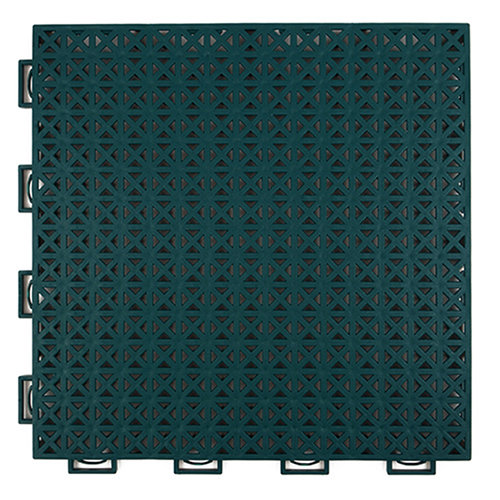Nov . 10, 2024 23:12 Back to list
Durable and Versatile Flooring Solutions for Industrial and Commercial Spaces
Understanding Industrial Commercial Flooring A Comprehensive Overview
In the realm of construction and design, flooring plays a pivotal role, especially in industrial and commercial settings. The choice of flooring not only impacts the aesthetics of a space but also influences its functionality, durability, and safety. Industrial commercial flooring encompasses a wide range of options, each tailored to meet the unique demands of different environments such as warehouses, factories, retail spaces, and offices. This article explores the various types of industrial commercial flooring, their benefits, and key considerations for choosing the right one.
Types of Industrial Commercial Flooring
1. Epoxy Flooring One of the most popular choices for industrial and commercial applications, epoxy flooring is known for its durability and resistance to chemicals, stains, and extreme temperatures. Made from a combination of resin and hardener, epoxy creates a seamless and non-porous surface that is easy to clean. It is ideal for manufacturing plants, laboratories, and warehouses where spills and heavy machinery are common.
2. Polyurethane Flooring Similar to epoxy, polyurethane flooring offers excellent durability and flexibility. This type of flooring is often used in areas that require a high level of abrasion resistance. Polyurethane is also UV resistant, making it suitable for spaces with natural light exposure. It is commonly found in manufacturing facilities, food processing plants, and healthcare settings.
3. Vinyl Flooring Vinyl flooring is a versatile and cost-effective option for commercial spaces. It comes in tiles or sheets and can mimic the look of natural materials such as wood or stone. Vinyl is resistant to moisture, making it a suitable choice for areas like restrooms and kitchens. Additionally, it is available in various colors and designs, allowing for creative expression in commercial aesthetics.
4. Concrete Flooring Concrete is a strong and durable option that is often used in industrial settings. Polished concrete can be finished to have a high-gloss sheen, making it not only functional but also visually appealing for showrooms and retail spaces. The ability to add dyes and sealants allows for customization, helping businesses create a unique environment while maintaining resilience against heavy foot traffic.
5. Carpet Tiles Despite being less common in industrial settings, carpet tiles are often used in offices and retail spaces for their sound insulation properties and comfort. They are available in various colors and patterns, allowing for easy renovation as individual tiles can be replaced in case of damage or stains.
Benefits of Industrial Commercial Flooring
Choosing the right industrial commercial flooring can offer numerous benefits
- Durability Industrial flooring is designed to withstand heavy foot traffic, machinery, and spills, ensuring longevity and reducing the need for frequent replacements.
- Safety Many commercial flooring options include features such as slip resistance, aiding in the prevention of workplace accidents. This is especially crucial in environments where spills or chemical use may occur.
industrial commercial flooring

- Maintenance Commercial flooring is often designed for easy maintenance, allowing businesses to keep their spaces clean without significant effort or cost.
- Versatility With a wide range of materials, colors, and designs available, industrial commercial flooring can be tailored to fit the unique aesthetic and functional needs of any business
.Key Considerations When Choosing Industrial Commercial Flooring
When selecting flooring for industrial and commercial settings, several factors should be taken into account
1. Traffic Level Consider the volume of foot or equipment traffic the flooring will experience to ensure it can handle the wear and tear.
2. Chemical Exposure If the environment involves exposure to harsh chemicals, choosing a flooring material that can resist such substances is critical.
3. Safety Features Evaluate the safety features of different flooring options such as slip resistance, especially in environments prone to spills.
4. Aesthetic Requirements The visual impact of flooring can enhance a brand's image, so it’s important to choose a product that aligns with the company’s design ethos.
5. Budget Cost is always a consideration. While some flooring options may have a higher upfront cost, they may offer savings in terms of longevity and maintenance.
Conclusion
In conclusion, industrial commercial flooring is a crucial element in creating functional and visually appealing spaces. With options ranging from epoxy to vinyl and concrete, businesses have the opportunity to select flooring that meets their specific needs for durability, safety, and aesthetics. By understanding the various types of flooring available and considering the unique requirements of your space, you can make an informed decision that enhances the efficiency and image of your commercial environment.
-
Premium Sport Court Tiles for Multi-Purpose Courts & Outdoor Use
NewsJul.26,2025
-
Multi Purpose Court Surface for Versatile Sports Use | Durable Tiles
NewsJul.25,2025
-
Durable Sport Court Tiles for Multi-Purpose Courts & Outdoor Use
NewsJul.24,2025
-
Durable Multi Sport Court Tiles for Indoor & Outdoor Use
NewsJul.23,2025
-
Premium Outdoor Court Tiles for Multi-Sport Use – Durable & Easy Install
NewsJul.22,2025
-
Premium Oval Running Track Solutions | Durable & Versatile
NewsJul.22,2025

